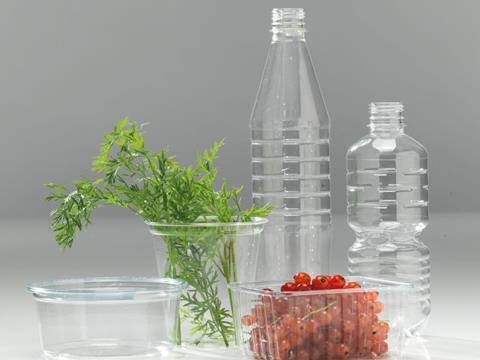
drinktec opens its doors from Sep 11-15, 2017. An opportunity to learn about new developments in the industry But proven technology has its merits. Starlinger will showcase PET advancements at the show.
In the field of PET recycling, Starlinger lines have earned an excellent reputation. Over the past five years alone, Starlinger has installed more than 20 PET recycling lines for food grade applications in 18 countries worldwide. The company manufactures PET recycling machinery in different extruder sizes (65 / 85 / 125 / 165 / 330) that meet the demand for various capacities, from an output of 150 to 3,600 kg/h. Starlinger offers different machinery setups in accordance with input material and final application of the recycled PET (rPET), the main applications being food grade containers and bottle-to-bottle installations.
Long-term partnerships in PET recycling
Starlinger always strives for long-term partnerships in PET recycling; many companies have been recycling PET with Starlinger lines for more than 10 years and value their reliability and high uptime. An example of such a long-term partnership is BTB PETRecycling GmbH & Co. KG based in Bad Salzuflen, Germany. The owner-managed company converts PET granulate into food-safe rPET for use in preform and film production. The recoSTAR PET 165 iV+ installed at BTB PET-Recycling shows an incredible 76,000 operating hours since its start-up in 2007; this means that the line has been running continuously except for service intervals. In 2015, BTB PET-Recycling invested in an upgrade to increase the output of its recycling line. This upgrade was installed in 2016, and yet another increase in capacity is planned for the near future.
Thorough decontamination of PET
Naturally, regranulate must undergo a decontamination process to be fit for use in direct food contact; depending on final application, the requirements in relation to rPET may vary considerably. In principle, customers need to satisfy the requirements of national and international authorities such as FDA or EFSA; in addition, bottle-to-bottle recyclers may need to adhere to the rules and threshold levels of multinational brand owners, which call for a higher decontamination performance. The cleaning efficiency of the Starlinger PET iV+ recycling process fulfils or even exceeds all of these requirements; based on the consistently positive evaluation by EFSA, it is possible to use 100 % rPET in the production of preforms. This means that rPET produced on recoSTAR PET iV+ lines may be used to replace virgin resin. A total installed bottle-to-bottle recycling capacity of currently more than 500,000 tons per year mirrors the positive reception of Starlinger decontamination technology in the market.
From bottle to fabric
The excellent recyclability of PET is an advantage not only in bottle-to-bottle recycling, but also in the field of textile packaging. In 2010, Starlinger started to develop the process technology for the production of PET tape fabric; at K 2016, the company presented a sack for dog food made from 100 % rPET flakes. The use of 100 % rPET flakes allows PET tape fabric to be recycled and reused in packaging production, which significantly reduces the carbon footprint of modern packaging solutions.
Starlinger invested time and resources in this technology for a reason: PET is the material of choice for a wide range of applications. PET fabric lends itself ideally to packaging food products and consumer goods because of its food-safety and visual appeal; heavy-duty fabrics such as big bags, geotextiles, carpet backing, or tarpaulins benefit from the extreme resistance and shape stability of PET (the material maintains its modulus and strength at temperatures up to 80 °C / 176° F and has excellent creep resistance). As this recent development clearly shows, recycling and packaging complement each other – not only at Starlinger.
Learn more about Starlinger’s PET recycling technology at drinktec 2017 in Munich, Hall A4, Booth 520.
More info:










